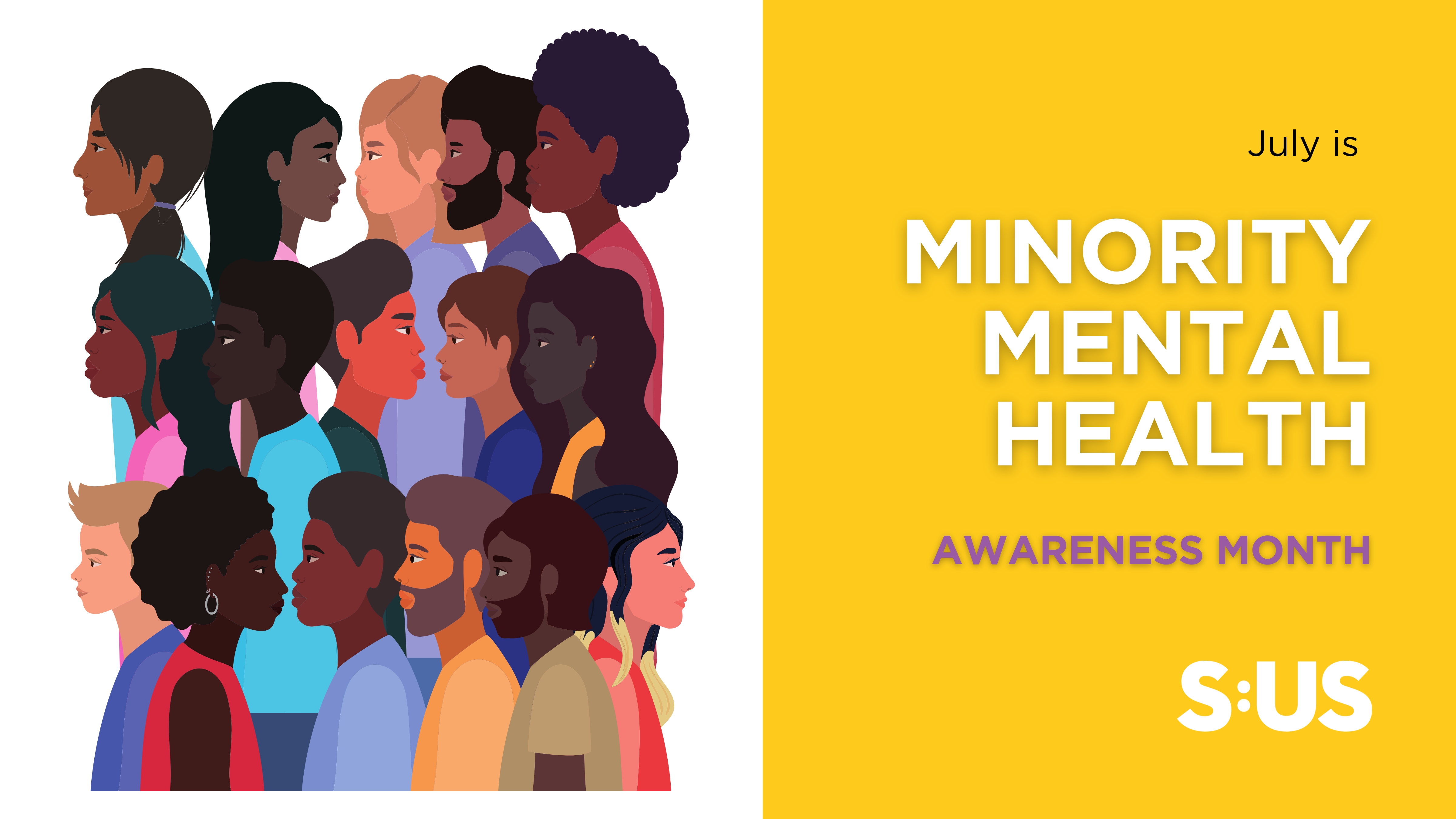Minority Mental Health Awareness Month

In 2008, inspired by Bebe Moore Campbell’s charge to end stigma and provide mental health support for minoritized communities, July was designated as Bebe Moore Campbell National Minority Mental Health Awareness Month by the U.S. House of Representatives.
“Once my loved ones accepted the diagnosis, healing began for the entire family, but it took too long. It took years. Can’t we, as a nation, begin to speed up that process? We need a national campaign to destigmatize mental illness, especially one targeted toward African Americans…It’s not shameful to have a mental illness. Get treatment. Recovery is possible.” – Bebe Moore Campbell, 2005
This month brings awareness to the unique struggles that our BIPOC (Black, Indigenous, and People of Color) community faces around mental illness in this country. Members of the BIPOC communities and other minority groups often face disproportionate inequities in care, support, or mental health services. Systemic racism, historical barriers, and inequities have left particular ethnic, racial and minoritized populations facing trauma, loss, bias, social disparities, and other unique challenges that have gone unsupported and largely unaddressed.
We also know that this community’s use of mental health services is very low in relation to the level of need, and it is also inequitably distributed. COVID-19 has further exacerbated these trends in availability and accessibility for our communities of color, which were hardest hit.
Mental health is a critical piece of overall health and affects every aspect of our lives.
If someone you know is going through a tough time, reach out and tell them you are there for them. We are all in this together.
Resources:
Download the 2024 BIPOC Mental Health Toolkit which includes tons of free, practical resources to support you in taking action for BIPOC mental health.
Join The Garrison Institute’s BIPOC Meditation Sangha, a free weekly gathering for people of color on Thursdays, 12-1pm EDT.
Call the National Suicide Prevention Lifeline by dialing 988 for free 24/7 confidential support.
Call 1-888-NYC-WELL, text “WELL” to 65173, or chat online with a professional. This 24/7 service is free of charge and completely confidential.
Call the NAMI-NYC Helpline 212-375-3101 or email [email protected]. Services are offered in English and Spanish, Monday-Friday 10am to 6pm.
Read these articles from Mental Health America:
BIPOC mental health myth-bustingBreaking down mental health stigma in BIPOC communities
How to cope when your community is under attack
Read How People of Color Can Experience Grief Differently Than White People (Huffington Post) for a BIPOC perspective plus resources for coping.
